Hermeneia: New Testament (31 vols.)
Digital Logos Edition
Overview
The Hermeneia series is designed to be a critical and historical commentary to the Bible without arbitrary limits in size or scope. It will utilize the full range of philological and historical tools, including textual criticism (often slighted in modern commentaries), the methods of the history of tradition (including genre and prosodic analysis), and the history of religion. Great for the serious student of the Bible, it will make full use of ancient Semitic and classical languages; at the same time, English translations of all comparative materials—Greek, Latin, Canaanite, or Akkadian—will be supplied alongside the citation of the source in its original language. Insofar as possible, the aim is to provide the student or scholar with full critical discussion of each problem of interpretation and with the primary data upon which the discussion is based.
Key Features
- Thirty-one volumes of New Testament exegesis
- Contains Continental Commentaries and Hermeneia Commentaries
- A fantastic collection for students, teachers, scholars, and professors
Praise for the Print Edition
Taken together, Hermeneia represents some of the best recent biblical scholarship...I have no hesitation in recommending them for students.
—Morna D. Hooker, University of Cambridge, Faculty of Divinity
Hermeneia will be the benchmark and reference point for all future work.
—Walter Brueggemann, Columbia Theological Seminary
Product Details
- Title: Hermeneia: New Testament
- Publisher: Augsburg Fortress Press
- Volumes: 31
- Pages: 14,197
Individual Titles
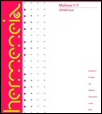
Matthew 1–7
- Author: Ulrich Luz
- Publisher: Augsburg Fortress Press
- Publication Date: 2007
- Pages: 472
The birth narrative, the baptism and temptation of Jesus, the beginnings of his Galilean ministry, and the Sermon on the Mount are all brilliantly illumined by Ulrich Luz's expert textual and historical-critical analysis and theological commentary. Luz brings special attention to the subsequent history of Christian appropriation of Matthew in homiletical and artistic interpretation, and addresses the terrible legacy of Christian anti-Judaism. This volume completes Luz's 3-volume commentary on the Gospel of Matthew in the Hermeneia series. A translation of the earlier German edition of Matthew 1-7 appeared in Fortress Press's Continental Commentary series. The text has been thoroughly revised and updated.
The textual engagement is astute, the theological exploration is insightful, and the history of interpretation material is unmatched.
—Warren Carter, Saint Paul School of Theology, Kansas City
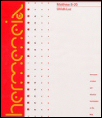
Matthew 8-20
- Author: Ulrich Luz
- Publisher: Augsburg Fortress Press
- Publication Date: 2001
- Pages: 646
This is the second of a three-volume commentary on the gospel of Matthew from Europe's leading Matthew scholar. Volume 1 Matthew 1-7 was previously published in the "Continental Commentaries" series. Luz’s commentary is especially noteworthy, not only for his incisive exegesis, but also his keen eye for the importance of the history of interpretation and his attention to the relevance of the New Testament for contemporary Christian ethics. This commentary includes excursuses on Son of David; Matthew’s Interpretation of the Parables; Peter in the Gospel of Matthew; and Son of Man.
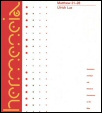
In this third volume, Luz brings his superlative analysis of Matthew's Gospel to a close. He is renowned for both his discerning exegetical insights as well as his tracing of the effects the text has had throughout history—in theological argument, art, and literature. This final section provides in-depth treatment of Jesus' final days—his entry into Jerusalem, the Passion Narrative, and post-resurrection appearances.
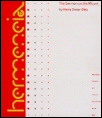
The Sermon on the Mount
- Author: Hans Dieter Betz
- Publisher: Augsburg Fortress Press
- Publication Date: 1995
- Pages: 736
To study these sermons with Betz is to be vastly informed about all forms of gospel criticism, and ultimately, about Jesus himself. This fantastic volume is a quintessential part of any New Testament scholar's library.
Hans Dieter Betz is author of several renowned commentaries, including Galatians, 2 Corinthians 8 and 9, and The Sermon on the Mount.
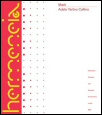
Mark
- Author: Adela Yarbro Collins
- Publisher: Augsburg Fortress Press
- Publication Date: 2007
- Pages: 930
Professor Adela Yarbro Collins brings to bear on the text of the first Gospel the latest historical-critical perspectives, providing a full treatment of such controversial issues as the relationship of canonical Mark to the "Secret Gospel of Mark" and the text of the Gospel, including its longer endings. She situates the Gospel, with its enigmatic portrait of the misunderstood Messiah, in the context of Jewish and Greco-Roman literature of the first century. Her comments draw on her profound knowledge of apocalyptic literature as well as on the traditions of popular biography in the Greco-Roman world to illuminate the overall literary form of the Gospel.
The commentary also introduces an impressive store of data on the language and style of Mark, illustrated from papyrological and epigraphical sources. Collins is in constructive dialogue with the wide range of scholarship on Mark that has been produced in the twentieth century. Her work will be foundational for Markan scholarship in the first half of the twenty-first century.
Adela Yarbro Collins is Buckingham Professor of New Testament Criticism and Interpretation at Yale Divinity School in New Haven, Connecticut. She has written numerous books on ancient Judaism and Christianity.
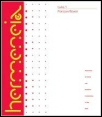
Luke 1:1-9:50
- Author: Francois Bovon
- Publisher: Augsburg Fortress Press
- Publication Date: 2002
- Pages: 480
This is the first of a three-volume commentary on the Gospel of Luke, covering the birth narratives through the Galilean ministry of Jesus. The introduction covers the text-critical questions of the Gospel, as well as its canonization, language, structure, origin, and theological profile. Bovon argues that Luke is not a direct student of Paul, but represents a specific form of the Pauline school in the third generation of the churches. The author also treats how the Gospel was used in later generations: writers from the early church, the Middle Ages, and the Reformation. He includes excursuses on "The Virgin Birth and the History of Religions," "The Devil," "The Word of God," and "Forgiveness of Sins."
François Bovon is Frothingham Professor of the History of Religion at Harvard Divinity School. His publications have appeared in French, German, and English; his English-language books include: Luke the Theologian and New Testament Traditions and Apocryphal Narratives. He is also co-editor of Exegesis: Problems of Method and Exercises in Reading.
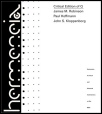
The Critical Edition of Q
- Editors: Paul Hoffman, John S. Kloppenborg, James M. Robinson
- Publisher: Augsburg Fortress Press
- Publication Date: 2002
- Pages: 690
A major new resource on the text and traditions of the Sayings Gospel.
The existence of Q (simply defined as the non-Markan material common to Matthew and Luke) as a document in the earliest churches was first hypothesized by C. H. Weisse in 1838. The existence, character, and significance of Q as a document from primitive Christianity has further been developed since then by numerous scholars, including the two groundbreaking books by John S. Kloppenborg: The Formation of Q and Excavating Q.
Q remains a subject of heated debate. The Q material consists mainly of sayings of Jesus, but begins with some sayings of John the Baptist. For the most part narratives are missing; most conspicuously of all is the Passion Narrative. The critical text edition includes an introduction; the running text of Q; new translations of Q in English, German, and French; the fully formatted Greek text of Q with parallels in Matthew, Luke, Mark, Gospel of Thomas, and other gospels wherever relevant; a concordance; and a bibliography.
Paul Hoffmann is Professor of New Testament at the University of Bamberg, Germany.
John S. Kloppenborg is Professor of Religion at the University of Toronto. His other works include Excavating Q: The History and Setting of the Sayings Gospel.
James M. Robinson is Emeritus Professor of New Testament at Claremont Graduate University and the Director of the Institute for Antiquity and Christianity. He is the editor of the Nag Hammadi Library and the author of numerous books. He first became known for his New Quest of the Historical Jesus and (with John Cobb) the trilogy on New Frontiers in Theology: The Later Heidegger and Theology, The New Hermeneutic, and Theology as History. He edited for UNESCO The Facsimile Edition of the Nag Hammadi Codices, in eleven volumes accompanied by a one-volume English translation, The Nag Hammadi Library in English, and a critical edition, The Coptic Gnostic Library.
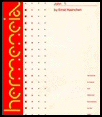
John 1: Chapters 1-6
- Author: Ernst Haenchen
- Publisher: Augsburg Fortress Press
- Publication Date: 1988
- Pages: 344
Contains a number of valuable insights. The introductory material on Johannine criticism is some of the clearest exposition for students available anywhere.
Ernst Haenchen is a theologian, biblical scholar, and author of several well-loved commentaries: John 1 and John 2.
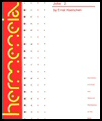
John 2: Chapters 7-21
- Author: Ernst Haenchen
- Publisher: Augsburg Fortress Press
- Publication Date: 1988
- Pages: 384
Contains a number of valuable insights. The introductory material on Johannine criticism is some of the clearest exposition for students available anywhere.
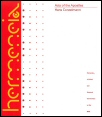
Acts of the Apostles
- Author: Hans Conzelmann
- Publisher: Augsburg Fortress Press
- Publication Date: 1988
- Pages: 288
Filled with compact, almost aphoristic observations about the text, its background, and its theology. Its insight should sustain its value for a full generation.
Hans Conzelmann (1915—1989) dedicated himself to New Testament studies at the universities of Tübingen, Heidelberg, and Göttingen in Germany. His The Theology of St. Luke introduced a new epoch in the interpretation of the Synoptic Gospels, followed by landmark studies on Jesus and Paul. Among his many influential works are his three Hermeneia commentaries: 1 Corinthians, The Acts of the Apostles, and, with Martin Dibelius, The Pastoral Epistles.
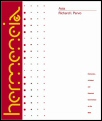
Acts
- Author: Richard I. Pervo
- Publisher: Augsburg Fortress Press
- Publication Date: 2008
- Pages: 800
The Acts of the Apostles joins the Gospel of Luke with the ministry of Paul. Renowned New Testament scholar Richard I. Pervo shows how this masterful storyteller worked his magic, drawing on first-century literary techniques of narration and characterization. Luke's literary skills did not prevent scribes from re-writing his masterwork, however, the textual tradition of Acts is among the most intriguing of the documents of the New Testament, and is a focus here.
Elegantly written, Pervo's commentary provides a compelling interpretation of Acts in the context of Hellenistic literature and the emerging Christian movement, Readers will rediscover the "profit with delight" that was the ideal of ancient story-tellers.
Richard I. Pervo has taught at Seabury–Western Seminary and the University of Minnesota and is the author of numerous books in New Testament studies. He lives in Saint Paul, Minnesota.
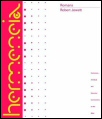
Romans
- Author: Robert Jewett
- Publisher: Augsburg Fortress Press
- Publication Date: 2006
- Pages: 1,000
Deeply conversant in the full range of questions and interpretations of the letter, Jewett's commentary explores the crucial and controverted passages that have always animated studies of Romans. Jewett also incorporates the exciting new insights from archaeology of the city of Rome, social history of early Christianity, social-scientific work on early Christianity, and the interpretation and reception of Paul's letter through the ages.
Breaking free from abstract approaches that defend traditional theologies, Jewett shows that the entire letter aims to elicit support for Paul's forthcoming mission to the "barbarians" in Spain. His work specifically focuses on Paul's missionary plans and how they figure in the letter, on Paul's critical and constructive tack with the Roman community, and finally and especially on how Paul's letter reframes the entire system of honor and shame as it informed life in the Roman Empire at the time. The latter remains a pertinent message today. The first commentary to interpret Romans within the imperial context as well as in the light of the situation in Spain, this landmark commentary, twenty-five years in the making, will set the standard for interpretation of Romans for the next generation.
Robert Jewett is Guest Professor of New Testament at the University of Heidelberg and Professor of New Testament Interpretation Emeritus at Garrett-Evangelical Theological Seminary. He is the author of numerous books in American religious and cultural history and New Testament studies, including Romans.
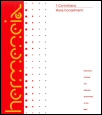
1 Corinthians
- Author: Hans Conzelmann
- Publisher: Augsburg Fortress Press
- Publication Date: 1988
- Pages: 324
This commentary on 1 Corinthians will bring to serious students, as well as pastors and ministers, the critical guide needed for their biblical work.
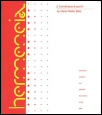
2 Corinthians 8 and 9
- Author: Hans Dieter Betz
- Publisher: Augsburg Fortress Press
- Publication Date: 1985
- Pages: 180
"In a fresh examination [of 2 Corinthians] what is needed first is a detailed and careful analysis of the chapters in order to find out whether they in fact can be related to letter categories known from other ancient epistolary literature, that is, whether their literary form, internal composition, argumentative rhetoric, and function can be shown to be that of independent epistolary fragments. The present study provides such an analysis of 2 Corinthians 8 and 9. This analysis is in most represents the first such attempt, but it is certainly not intended to be the last word on the subject. Sufficient evidence is provided to support the conclusions, so that quick reactions of mere agreement or disagreement, a mere embrace or indignation, will be avoided. The challenge to the serious students of the New Testament is to sustain a developed scientific argument." —from the Forward and Preface
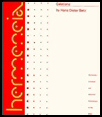
Galatians
- Author: Hans Dieter Betz
- Publisher: Augsburg Fortress Press
- Publication Date: 1989
- Pages: 352
Betz exhibits a massive control of the literature on Galatians and especially of the ancient literatuer relevant for understanding it. He has a gently rigorous way of demolishing fanciful and unsupported exegesis of the past while still taking clear positions on controversial issues.
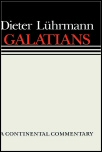
Galatians
- Author: Dieter Lührmann
- Publisher: Augsburg Fortress Press
- Publication Date: 1992
- Pages: 176
The long-awaited commentary by Dieter Lührmann is now available to English-speaking audiences for the first time. It is a profound, succinctly written dialogue with the text that carefully follow the main points of Paul’s arguments in his most controversial letter. The author presents a theological interpretation which takes seriously Paul’s claim about the Gospel and also provides a distinctive outline based on this close reading of the text. Also included are helpful discussions of the competing theologies of Paul and his opponents, a chart on Paul’s career, and a map of the Roman world. Lührmann is a highly acclaimed interpreter of the New Testament. This volume is a valuable addition to a well-received commentary series.
Dieter Lührmann is Professor of New Testament at Marburg University, Germany. He is the author of several New Testament monographs and commentaries.
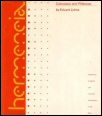
Colossians and Philemon
- Author: Eduard Lohse
- Publisher: Augsburg Fortress Press
- Publication Date: 1988
- Pages: 234
Lohse gives the reader solid interpretation and access to other scholars' efforts. A distinguished, scholarly commentary.
Eduard Lohse is author of Colossians and Philemon, and is a well-loved biblical scholar and theologian.
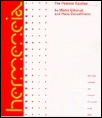
The Pastoral Epistles
- Authors: Hans Conzelmann, Martin Dibelius
- Publisher: Augsburg Fortress Press
- Publication Date: 1989
- Pages: 176
There are many English commentaries on these letters, but none so replete with quotations (some quite extensive) from extra-biblical materials, whether Hellenistic, Jewish, or Christian, that bear on the linguistic and conceptual problems the letters contain.
Martin Dibelius (1883–1947) was Professor of New Testament at the University of Heidelberg, Germany, and one of the most important biblical scholars of the twentieth century. Among his many publications in English are From Tradition to Gospel, The Sermon on the Mount, Paul, and The Pastoral Epistles.
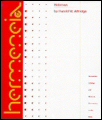
Hebrews
- Author: Harold W. Attridge
- Publisher: Augsburg Fortress Press
- Publication Date: 1989
- Pages: 438
The first major and comprehensive English-language commentary on Hebrews in over fifty years. Presents a balanced and richly documented interpretation.
Harold W. Attridge is Dean of Yale University Divinity School and Lillian Claus Professor of New Testament. His books include Hebrews in the Hermeneia series.
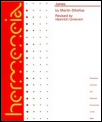
James
- Author: Martin Dibelius
- Publisher: Augsburg Fortress Press
- Publication Date: 1988
- Pages: 286
A distinguished contribution to New Testament scholarship. Represents a classic position that must be taken into account by all other interpreters.
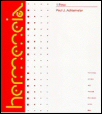
1 Peter
- Author: Paul J. Achtemeier
- Publisher: Augsburg Fortress Press
- Publication Date: 1996
- Pages: 464
This commentary, the fruit of years of research, is a gold-mine for clergy and an indispensable resource for students and scholars. Achtemeier brings to this text his characteristic mastery of scholarship, theological insight and balanced judgment.
Paul J. Achtemeier is Professor of New Testament at Union Theological Seminary in Virginia.
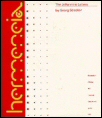
The Johannine Letters
- Author: Georg Strecker
- Publisher: Augsburg Fortress Press
- Publication Date: 1996
- Pages: 368
A scholarly treatment of the major literary, exegetical, and theological issues connected with the Johannine epistles, presented in a detailed and sustained fashion.
Georg Strecker is author of several books, including The Johannine Letters.
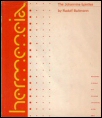
The Johannine Epistles
- Author: Rudolf Bultmann
- Publisher: Augsburg Fortress Press
- Publication Date: 1973
- Pages: 143
A classic commentary on 1, 2, and 3 John from a well-known name in the field of biblical studies. Bultmann addresses issues of authorship and source criticism into his discussion of the epistles, largely siding with Haenchen and Schnackenburg.
Rudolf Bultmann (1884-1976) was perhaps the most influential New Testament scholar of the twentieth century. His History of the Synoptic Tradition, Theology of the New Testament, and his commentaries on The Gospel of John and The Johannine Epistles are lasting testimonies to his achievement.
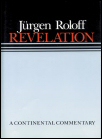
Revelation
- Author: Jürgen Roloff
- Publisher: Augsburg Fortress Press
- Publication Date: 1993
- Pages: 288
Is Revelation, with its strangeness and idiosyncratic theology, a legitimate expression of the Gospel? To this question, raised by the book’s conflicting history of influence, Jürgen Roloff is able to answer yes. Viewing Revelation as a lively interaction between the author and concrete communities of faith, Roloff maintains that the book’s epistolary framework is the chief starting point for interpreting its prophetic message and bizarre apocalyptic images.
Jürgen Roloff has produced an interpretation of the Revelation of John that can be certain to gain the special interest of theologians because of his . . . emphasis on the Christological starting-point of Revelation and the perspective that this discloses for the Christian community.
—Hans-Friedrich Weiss
In this commentary, one catches the Revelator’s vision of eternity ablaze with promise and expectation of accountability in the bleakness of the present. May this book find many who are willing to dialogue with the Revelator.
Jürgen Roloff is Professor of New Testament at the University of Erlangen, Germany, and is the author of several important New Testament studies.
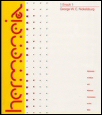
1 Enoch 1
- Author: George W. E. Nickelsburg
- Publisher: Augsburg Fortress Press
- Publication Date: 2001
- Pages: 662
1 Enoch is one of the most intriguing books in the Pseudepigrapha (Israelite works outside the Hebrew canon). It was originally written in Aramaic and is comprised of several smaller works, incorporating traditions from the three centuries before the Common Era. Employing the name of the ancient patriarch Enoch, the Aramaic text was translated into Greek and then into Ethiopic. But as a whole, it is a classic example of revelatory (apocalyptic) literature and an important collection of Jewish literature from the Hellenistic and Roman periods. This volume represents the culmination of three decades' work on the Book of 1 Enoch for Nickelsburg. He provides detailed commentary on each passage in chapters 1-36 and 81-108, and an introduction to the full work. The introduction includes sections on overviews of each of the smaller collections, texts and manuscripts, literary aspects, worldview and religious thought, the history of ideas and social contexts, usage in later Jewish and Christian literatures, and a survey of the modern study of the book.
George W. E. Nickelsburg is Emeritus Professor of Religion at the University of Iowa, where he taught for more than three decades. He is the author of seventy articles and several hundred dictionary and encyclopedia entries. Among his many works are Faith and Piety in Early Judaism and Early Judaism and Its Modern Interpreters.
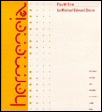
Fourth Ezra
- Author: Michael E. Stone
- Publisher: Augsburg Fortress Press
- Publication Date: 1990
- Pages: 520
Fourth Ezra is a magnificent commentary, the definitive and standard work for generations to come. Brimming with outstanding biblical scholarship, this volume is a fantastic companion to Bible study.
Contents:
- Foreword to Hermeneia
- Preface
- Reference Codes
- Editor's Note
- Introduction
- Section 1: Text and Transmission
- Section 2: Date, Place, and Original Language
- Section 3: Chief Critical Issues
- Section 4: The Present Commentary
- Section 5: 4 Ezra in Jewish Literature An Apocalypse
- Section 6: Ezra in Christian Tradition
- Commentary
- Bibliography
- Indices
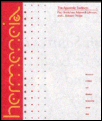
The Apostolic Tradition
- Authors: Paul F. Bradshaw, Maxwell E. Johnson
- Publisher: Augsburg Fortress Press
- Publication Date: 2002
- Pages: 282
"The anonymous early church order that became known as the Apostolic Tradition and conventionally attributed to Hippolytus of Rome has generated enormous scholarly discussion since its discovery in the nineteenth century. Surprisingly, however, there has never before been a comprehensive commentary on it such as there is for other patristic works. We have here attempted to remedy this defect, and at the same time we have offered the first full synoptic presentation in English of the various witnesses to its text. We have also taken the opportunity to develop our argument that it is neither the work of Hippolytus nor of any other individual. Instead, we believe that it is a composite document made up of a number of layers and strands of diverse provenance and compiled over a period of time, and therefore not representing the practice of any one Christian community." —from the Preface
This Hermeneia volume provides an important contribution to New Testament research as well as the study of the patristic era.
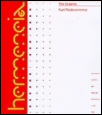
The Didache
- Author: Kurt Niederwimmer
- Publisher: Augsburg Fortress Press
- Publication Date: 1998
- Pages: 318
One hundred twenty-five years ago, Philotheos Bryennios discovered the text of the Didache in an eleventh-century manuscript version. In 1883 he edited the manuscript for publication, and its special fascination for scholars remains undiminished. One of the oldest extracanonical Christian documents, the Didache's origins can be traced to the first century. It is apparently a catechism, intended to provide basic instruction in the Christian lifestyle and worship for persons preparing for baptism. The Didache exhibits fascinating echoes of Jesus' teaching in its Matthean form, along with rare glimpses into the life of an early Christian community--its values, its observance of the Eucharist, its leaders, and the character of its hope. Niederwimmer's wonderful commentary is a model of clarity and learning and a splendid addition to this premier commentary series.
Kurt Niederwimmer is Professor of New Testament at the University of Vienna and an editor of the Commentary on the Apostolic Fathers series (KAV). Among his books are Askese und Mysterium, Jesus, and Der Begriff der Freiheit im Neuen Testament.
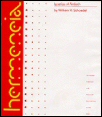
Ignatius of Antioch
- Author: William R. Schoedel
- Publisher: Augsburg Fortress Press
- Publication Date: 1985
- Pages: 306
This book belongs on the shelf of every minister who takes seriously the history and theology of the early church. A fascinating look at Ignatius of Antioch.
Contents:
- Foreword
- Preface
- Introduction
- 1. The Letters of Ignatius in the Christian Tradition
- 2. Literary character of the Letters of Ignatius
- 3. Historical and Social Context
- 4. Religious and Intellectual Background
- 5. Ignatian Themes
- Bibliography
- Indices
William R. Schoedel is author of numerous books, including the well-loved volume, The Secret Sayings of Jesus: A Modern Translation of the Gospel of Thomas with Commentary by Robert M. Grant, David Noel Freedman, and William R. Schoedel.
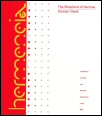
Shepherd of Hermas
- Author: Carolyn Osiek
- Publisher: Augsburg Fortress Press
- Publication Date: 1999
- Pages: 320
Extremely popular in its time, The Shepherd of Hermas is a second-century work often used for instruction of catechumens, and in fact, is widely regarded as scripture. In it Hermas, a rich freed slave whose wealth was not always lawfully obtained, undergoes and relates several visions (including one from an angel disguised as a shepherd), repents, and offers advice on Christian teaching and behavior. Comprehensive and careful, Carolyn Osiek's is the only full-length commentary on "The Shepherd" in English. Hermas's revelations afford us glimpses of religious imagination, social world, and moral ideals among early second-century Rome.
Carolyn Osiek is Professor of New Testament at Brite Divinity School, Fort Worth, Texas. Her previous books include A Woman's Place: House Churches in Early Christianity.
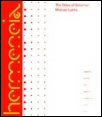
The Odes of Solomon
- Author: Michael Lattke
- Publisher: Augsburg Fortress Press
- Publication Date: 2009
- Pages: 864
Known until the 18th century only from fragmentary quotations and references in patristic literature, more recent discoveries of Greek, Coptic, and Syriac manuscripts have drawn fresh interest and attention to the Odes of Solomon, a collection of Christian poetry from the second century rich in imagery and exhibiting an exotic spirituality. Internationally renowned expert on the Odes Michael Lattke provides a meticulous translation and discussion of the textual transmission of the Odes, along with judicious commentary on the place of the Odes in the development of Gnosticism, Logos theology, and early Christian worship. Historians and students of early Christianity will find this commentary a valuable resource for years to come.
Michael Lattke is Emeritus Professor in the School of History, Philosophy, Religion, and Classics at the University of Queensland, teaching New Testament and early Christianity, Greek, Syriac, Coptic, and Greco-Roman religions; he is the founder of the Brisbane Seminar Group for New Testament and Early Christian Studies, and is the author of numerous publications on the Apology of Aristides, the Odes of Solomon and the Psalms of Solomon.
This title is included in the following collections
You can save when you purchase this product as part of a collection.
Fortress Press New Testament ...
$689.99$689.99Logos 7 Platinum Legacy Librar...
$1,499.99$1,499.99Logos 7 Methodist & Wesleyan P...
$1,499.99$1,499.99Hermeneia and Continental Comm...
$2,950.15$2,199.99
- $2,999.99$2,249.99
- $2,999.99$2,249.99
- $2,999.99$2,249.99
- $3,149.99$2,362.49
- $2,999.99
- $2,999.99
- $2,999.99
- $2,999.99
- $2,999.99
- $2,999.99
- $2,999.99
- $4,749.99$3,562.49
- $4,749.99$3,562.49
- $4,749.99$3,562.49
- $4,749.99$3,562.49
- $4,749.99$3,562.49
- $4,749.99$3,562.49
- $4,899.99$3,674.99
- $5,999.99$4,499.99
- $5,999.99$4,499.99
- $4,749.99
- $4,749.99
- $4,749.99
- $4,749.99
- $4,749.99
- $4,749.99
- $4,749.99
- $4,749.99
- $4,749.99
- $4,749.99
- $4,749.99
- $4,749.99
- $4,749.99
- $6,399.99$4,799.99
- $7,749.99
- $10,999.99$8,249.99
- $11,399.99
- $11,399.99
- $11,399.99
- $23,999.99$17,999.99
- $21,749.99
- $24,999.99
Reviews
2 ratings

Ralph A. Abernethy III
9/7/2017

Ordice Gallups, Obl.S.B.
1/17/2013